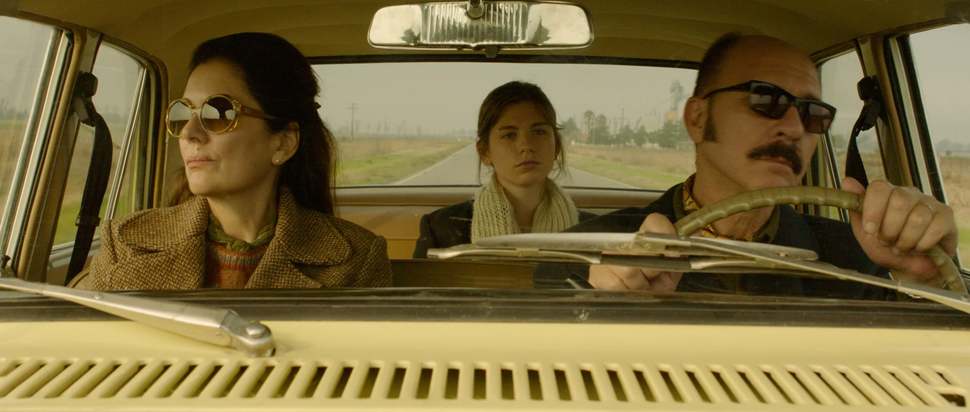Rojo
Pre-coup Argentina is the setting for this chilling tragicomic drama centred on a middle-aged lawyer who becomes embroiled in the atmosphere of fear and violence soon to sweep the country
While waiting for his wife in a busy restaurant, a middle-aged lawyer named Claudio (Grandinetti) is accosted by a nervous-looking stranger. He demands Claudio give up his table so he can order, which Claudio reluctantly acquiesces to. But this is regional Argentina, in 1975, and although the coup d’état that ousted Isabel Perón won’t happen for another few months, the threat of violence is palpable. Their quarrel doesn’t stop here, and things turn ugly when Claudio begins psychoanalysing the man’s behaviour. He responds violently, ranting loudly about Nazis before being forcibly ejected. After dinner, Claudio discovers that the man has been waiting for him outside. What happens next is unexpected and, like many Argentinians deemed to be a threat to the status quo, the stranger suddenly ‘disappears’.
Naishtat’s psychological portrait of complicity is a film of absences; not just the disappearances that would define the Dirty Wars, but the lack of resistance to this proliferating evil. Three months later Claudio finds himself under investigation by a celebrity detective from Chile, but Rojo is much more than a Columbo-style whodunnit, with the film’s elaborately constructed script crammed with political symbolism and subplots designed to deceive. The arrival of a touring troupe of American cowboys and a shady real-estate deal might feel like narrative dead ends, but each incident alludes to the various internal and external elements that would help the US-backed military dictatorship consolidate power.
A pastiche of Latin America’s conflicted identity, the film’s aesthetic is heavily influenced by American cinema and television advertisements of the era, combining the melodrama of telenovelas with the gritty visual palette of films like Serpico and The Conversation. Highlighting the role colonisation played in this unsettling period of Argentinean history, Rojo demonstrates how a culture of silence and denial can culminate in a climate of fear.
Released 6 Sep by New Wave; certificate 15
